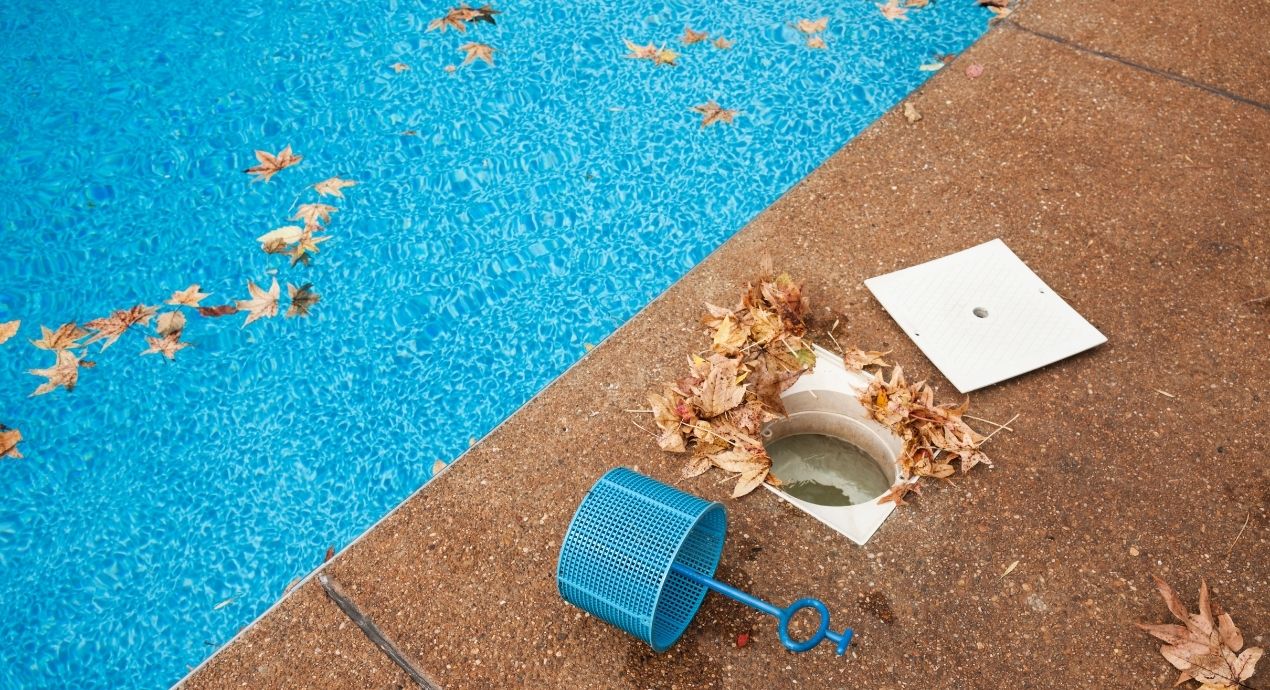
Contemplating coverage?
Subscribe to receive our emails & get
$200 off!
Have questions?
Call us: (833) 544-8273


Written By Allaire Conte
A pool is an irresistible summer luxury, but they demand a great deal of attention. Homeowners need to consider problems that can afflict the pool’s water and equipment.
In this post, we’ll review some common swimming pool problems and their potential solutions. We’ll also share some information on how you can keep these problems from creeping up in the first place.
There's a reason Liberty Home Guard was rated the #1 Home Warranty Service by U.S. News and World Report for 2021, 2022, 2023, and 2024. Check out our services.
Learn MoreFrom malfunctioning pumps to icky water to pool opening problems, there are a number of things that can render your pool into little more than a water-filled hole in the ground. Let’s dive in.
The pump is one of your pool’s most important features. Even small malfunctions can cause cascading issues down the line, so it’s important to deal with any pump problems as soon as possible. One of the most common problems is a leaking pump. This is usually caused by a faulty O-ring or other seal. To confirm, look for the O-ring between the filter head and filter body. Check for rips, tears, warping, or other signs of deterioration. If anything looks amiss, replace the O-ring. Fortunately, these are inexpensive.
O-ring replacements are inevitable, but you can extend their lifetime by applying a little bit of silicone lubricant. It’s also a good idea to check the O-ring periodically throughout the year to stay on top of any necessary replacements.
You may notice your pool pump making unusual noises. This is often due to insufficient water or an accumulation of debris. Resolve this by checking that your suction lines are open, as open lines facilitate the flow of water into the pump. Also check the skimmers for debris. Remove anything you find. If these solutions don’t resolve the problem, you may have a leak.
You can avoid pump noises by staying on top of the maintenance for your pool pump. A home warranty with pool coverage can make this easier. With Liberty Home Guard, you can simply file a claim and we’ll send out a technician to service your pool equipment.
Water that appears murky or cloudy could have a couple of causes. If you live in an area with a significant amount of pollen or other particulates in the air, they could accumulate in your pool and give the water a cloudy appearance. Consider placing a screen over the pool. Also check your filter to confirm it isn’t clogged.
Bacteria buildup can cause cloudy water as well. This is caused by insufficient chemical treating. Test the water and add chlorine as needed. Depending on the severity, you may need to shock your pool. Avoid this problem by routinely testing your pool’s chlorine levels.
Green water doesn’t make an afternoon dip seem too inviting. This problem is likely caused by a proliferation of algae that can grow when the pool’s chlorine levels are too low. Chemically shock your pool to kill the algae. Then scrub the pool’s floor and walls. Finally, vacuum your pool thoroughly to remove the dead algae.
Scrubbing a pool of algae growth isn’t exactly a fun weekend activity. Again, you can avoid swimming pool water problems by staying on top of your water testing.
If you find your eyes or skin irritated after a swim, the pH level in your pool is not where it needs to be. The recommended pH level for a swimming pool is between 7.2 and 7.6. Test your water and apply the necessary chemicals to achieve the correct balance. Test your water often to keep from getting those stinging, red eyes in the first place.
A clogged or dirty pool filter means the filter is doing its job. Part of responsible pool maintenance is cleaning your filter every now and then. Not doing so means your filter works harder, shortening its lifespan and increasing your chances of other problems down the line. Check your filter periodically for debris and clean as necessary. Usually a garden hose will do just fine.
If you live in a location with hard water, you may notice a buildup of calcium in your pool. You can remove this with calcium remover, or even a simple scrub brush or pumice stone if the buildup isn’t too significant. Avoid mineral buildup by keeping your pool’s pH in check and applying a calcium sequestering agent.
While many pool problems are easy to sort out on your own, some require professional assistance. Pool warranty coverage from Liberty Home Guard can save you money on your pool’s service and maintenance. Call (866)-809-0507 to learn more about how comprehensive warranty coverage can keep your pool in great shape.
Stay Ahead of Potential
Home Mishaps!
Subscribe to our Liberty Home Guard Newsletter and gain access to exclusive content that ensures your peace of mind.